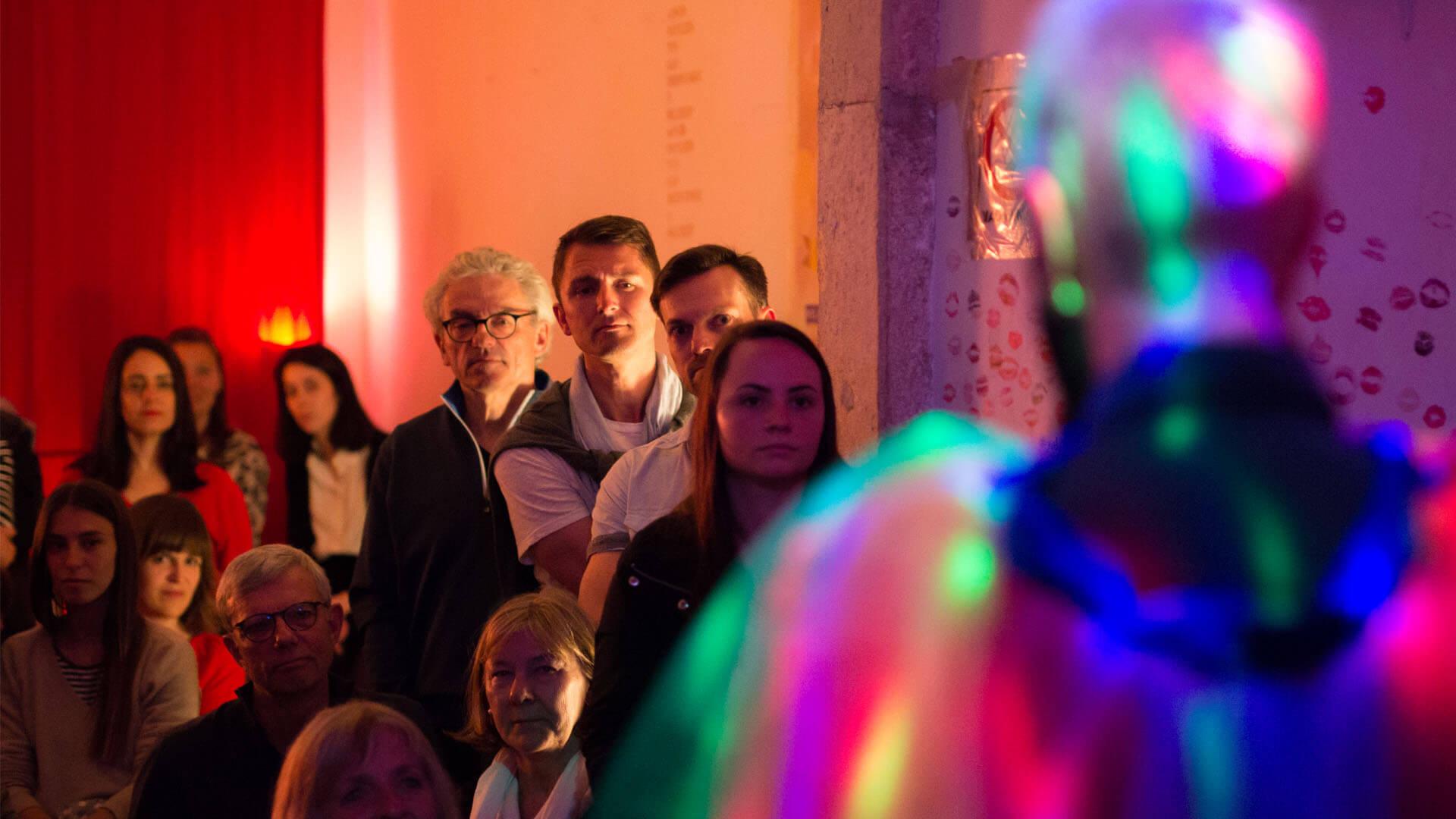Fado Bicha is forcing traditional Portuguese fado ‘out of the closet’
Lila Fadista puts on a drag show. She often moans and lies on the floor, teasing the audience with sexual innuendo.
Tiago Lila first fell in love with Portuguese fado music because of Amália Rodrigues. Growing up as a homosexual, he felt bullied in school and unsupported by his family. Rodrigues’ soulful singing gave him solace.
“She put a name on a lot of things that didn’t have a name or an existence, they were just very dark, loose demons in my head,” he says.
Lila started singing fado in Greece, where he lived for some years during the height of the financial crisis. His non-Portuguese friends saw the depth of Lila’s connection with fado and told him that he had to sing it.
At the time, a lot of Greeks were actively engaged in politics and Lila wished that the Portuguese — usually considered passive and mild-mannered — would adopt similar levels of activism. In 2016 he returned to Portugal to enlist in a political party and to study and learn fado in a traditional school. He wasn’t sure how, but he felt he could make a difference experimenting with both.
Tiago says both experiences were disappointing, so he quit both activism and traditional fado training. Despite the homophobia he found at the fado school, he knew to stop singing fado altogether wasn’t an option. His only alternative was to figure out a way that fado could encompass his identity as a gay man who didn’t want to hide anymore.

One night, while watching a drag performance at a bar in Lisbon, Lila got the idea of combining a drag show with fado. Shortly after, he began performing under the stage name “Lila Fadista.” He met guitarist João Caçador and they have been performing together as Fado Bicha for the past year.
Fado Bicha, which roughly translates to Queer Fado, is meant as a provocation to force fado out of the closet.
“Bicha is a very offensive slur, but LGBT people nowadays use it as an empowering word as well,” Lila says, explaining that by normalizing the word, its offensiveness dissolves.
Portugal is considered gay-friendly, despite its reputation as a conservative country. Gay marriage became legal in 2010 and in 2016, Parliament gave adoption rights to same-sex couples.
That shift is recent, however. The criminalization of homosexuality was overturned only in 1982. The laws might have changed, but deeply ingrained attitudes take longer to transform. Homophobia still looms beneath the surface and more overtly outside the larger, more modern cities. The world of fado, with its rules and deep traditions, was considered off-limits up until now.

Fado Bicha is challenging those rules and causing some uproar among other fado singers. Traditional fado performers sing standing still, their chins held high. Lila Fadista puts on a drag show, sometimes dressing up as a prostitute. She moans and lies on the floor, teasing the audience with sexual innuendo. Lila and Caçador use an electric guitar instead of the traditional Portuguese guitar and rewrote classic lyrics about love and loss between men and women, to tell the stories of LGBTQ love and of women’s oppression.
On social media, after their first performance, they were met with hatred and called “freaks” by traditional fado singers as well as older Portuguese drag performers, who sought to distance themselves from the group.
Caçador, who still plays guitar and sings fado in traditional houses, says the other performers are friendly. But beneath the surface, he identifies deeply ingrained homophobia.
Cláudia Picado, a traditional fado singer and Caçador’s colleague, is not sure Fado Bicha constitutes as “real fado,” although she has never seen a show.
“Maybe if I close my eyes,” she says, slightly afraid her words might come off as offensive. Hearing Fado Bicha change the lyrics of traditional songs causes some bewilderment.

“I prefer to see it as a joke because it is a joke, you know … If they want to record the songs, it’s not allowed — the poets wrote these poems. It’s not possible to change them,” says Picado.
Fado Bicha sees the rewriting of the songs differently. Especially since some of the poets who wrote those songs were gay at a time when they could face persecution. Lila and Caçador requested permission from the Portuguese Society of Authors to record their new lyrics, though they’re skeptical they will receive the authorization necessary to record.
“We feel it’s legitimate from our part to sing these songs in a way or to believe that it’s possible that we’re giving voice to [a community] that was there the whole time but was never fully outed this way,” Lila says.
Fado Bicha is about fado and art as much as it is about politics and activism. Lila found what he was looking for. And the group believes it’s helping LGBTQ people in Portugal.
“We hear a lot of stories about people that came out of their closets and used [our] song, ‘De Costas Voltadas,’ which translates to, ‘They have turned their backs on each other,’ to create bridges of communication between their parents,” Caçador says.
The same is true for his family. In this song, Lila Fadista sings about a family in which the members have turned their backs against each other “from the cradle to the grave” because of the lack of acceptance of the LGBTQ member.
“My parents listened to that song. Although they didn’t tell me about it, I think they felt something and they changed. They have also created a channel of communication with me and now I feel they support me 100 percent,” Caçador says.
